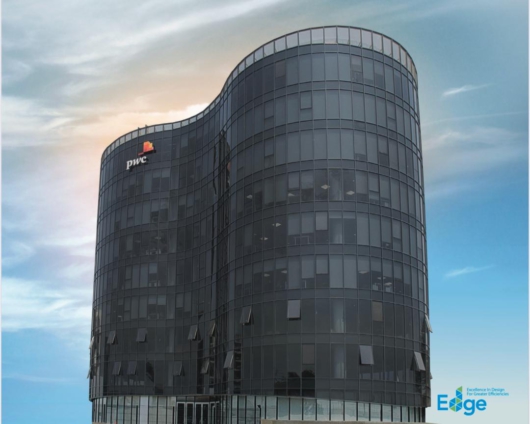One in every two bank executives, representing 50% interviewed alluded that credit operations have been worst hit by the Covid-19 crisis, the 2020 PwC Banking Sector Survey has revealed.
The pandemic according to the research forced banks to do more for their clients including reduction of interest rates, deferral of interest payments and in some cases, deferral of principal payments.
“Although the banks believe the worst of the immediate crisis is behind us, the impact of the pandemic on the performance of loans and other financial instruments is expected to linger until 2023”, it disclosed.
The survey further revealed that as an immediate response to the crisis phase, all banks responded to the pandemic by adopting cost containment measures such as temporary closure of some branches, use of social media to communicate with customers as against the traditional newspaper and billboards and also staff rotation.
The banks also enhanced digitisation in their operations in order to cushion against the forecasted decrease in operational results.
67% of respondents indicated that they had to defer the disbursement of loans as a measure to manage the liquidity of the banks; informed by drop in deposits and low-to-no economic activity.
While banks applauded the measures introduced by the regulator of the industry [Bank of Ghana], they believe more guidelines and clarification on timelines attached to each policy are necessary to ensure that the full benefits of these relief policies are realised.
Banking beyond COVID-19
The survey pointed out that amid covid-19, the new way of doing business appealed to 69% of the bank executives surveyed.
They agreed that their immediate response to the pandemic proved beneficial and is worth carrying on with.
The investments made in technology and capacity building of staff would also flow into their rescripted strategy aimed at staying ahead of competition in an evolved banking sector.
Impact on operations
The renowned accounting firm survey revealed that the innovations in digital banking platforms such as deposit-accepting Automated Teller Machines, mobile banking (including the use of USSD codes), internet banking and corporate electronic banking proved to be very beneficial.
Walk in or face-to-face transactions also remained the most prominent medium of banking for 68% of banks up until February 2020.
The traditional mode of banking however changed during the COVID-19 crisis phase with mobile banking becoming the most preferred medium of banking according to 56% of bank executives.
This was be attributed partly to the reliefs granted by Bank of Ghana through the waiver of fees on up to GHS 100 transactions (except cash out) and convenience of banking without stepping out of one’s home. As a result, some banks recorded over 200% growth in the use of mobile banking applications.
Latest Stories
-
AFPNC leads the charge on World Prematurity Day 2024
2 mins -
Court remands unemployed man over theft of ECG property
8 mins -
Election security rests solely with the police – Central Regional Police Command
10 mins -
NCCE engages political youth activists at Kumbungu on tolerance
11 mins -
‘In Mahama’s era students lacked chalk, but are now receiving tablets’ – Bawumia
20 mins -
Project commissioning not a ploy to attract votes – Oppong Nkrumah
22 mins -
CBG records GH¢1bn revenue in Q3
25 mins -
Mahama vows to create an agro-processing zone in Afram Plains
39 mins -
Political parties should plan for losses, not just wins – IGP advises
40 mins -
524 Diasporan Africans granted Ghanaian citizenship in ceremony
42 mins -
Mahama urges Afram Plains North residents to avoid ‘skirt and blouse’ voting
44 mins -
Asantehene receives more 19th century gold ornament and regalia
51 mins -
Hohoe Ghana Blind Union organises training for members ahead of Election 2024
57 mins -
Alan Kyerematen reveals his future plans for Ghanaian Health professionals
58 mins -
AAIN empowers women and small enterprises in Upper East Region through SHINE project
59 mins

